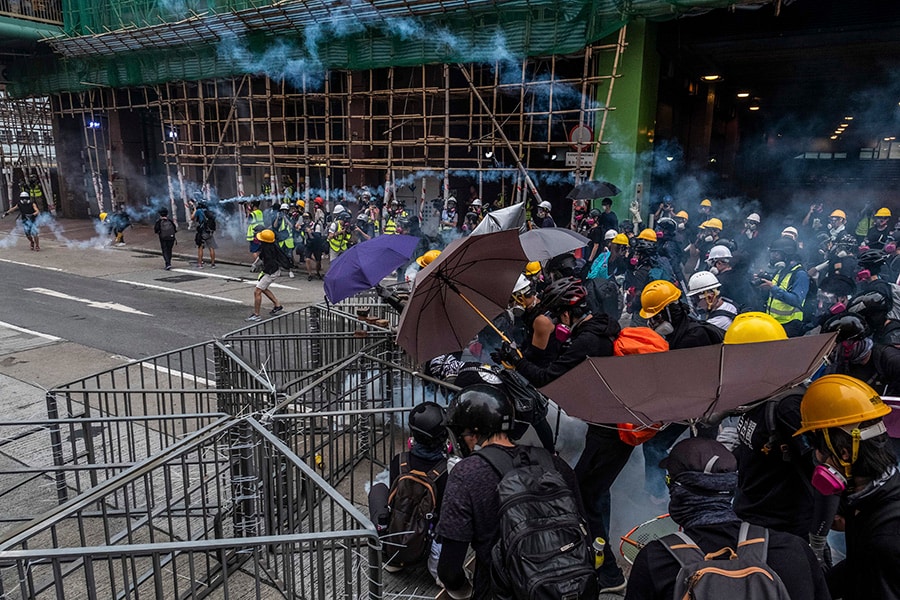
Alibaba postpones Hong Kong listing as protests roil markets
Protests have disrupted the city for months and have begun to disrupt the commerce that makes up its lifeblood. The offering had been expected to raise $10 billion to $15 billion
 Demonstrators during clashes with police in Hong Kong, Aug. 11, 2019. Alibaba, the Chinese e-commerce giant, has postponed plans to list its shares on the Hong Kong Stock Exchange, according to two people briefed on the matter, as protests continue to rock the Asian financial capital. (Lam Yik Fei/The New York Times)
Demonstrators during clashes with police in Hong Kong, Aug. 11, 2019. Alibaba, the Chinese e-commerce giant, has postponed plans to list its shares on the Hong Kong Stock Exchange, according to two people briefed on the matter, as protests continue to rock the Asian financial capital. (Lam Yik Fei/The New York Times)
LONDON — Alibaba, the Chinese e-commerce giant, has postponed plans to list its shares on the Hong Kong Stock Exchange, according to two people briefed on the matter, as protests continue to rock the Asian financial capital.
The protests and the instability they created in Hong Kong’s stock market led to the postponement of the offering, which had been expected to take place later this month, according to these people. The offering had been expected to raise $10 billion to $15 billion, one person said.
Protests have disrupted the city for months and have begun to disrupt the commerce that makes up its lifeblood. Many economists are now predicting its economy will shrink in coming months because of both the anti-government demonstrations and the worsening trade war between the United States and China.
It is not clear when the company plans to stage the stock offering. A spokesman for Alibaba declined to comment on the plans, which were reported earlier by Reuters.
Hong Kong’s business scene has been increasingly affected by the protesters, who are pushing back against China’s rule. The stock market has fallen about 9% since the end of June, as clashes between demonstrators and the police have grown increasingly violent and showed little sign of slowing down.
Beijing has tried to use its economic sway to try to get the corporate world to back its hold on the territory. Last week, the chief executive of Cathay Pacific Airways, one of Hong Kong’s most successful global brands, said he would resign as the company came under increasing pressure from Chinese regulators and the country’s state-controlled news media. On Wednesday, Cathay Pacific said its planes were less full in July compared with a year ago, and it said it expects an even more significant impact in the coming months.
©2019 New York Times News Service




